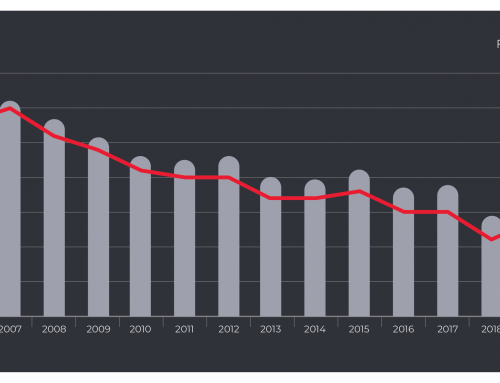A Brisbane construction company has been fined for a safety failure to ensure a critical risk was managed on a construction work site.
The company was recently fined $85,000 in the Brisbane Magistrate’s Court after a concrete worker contacted an overhead powerline with a bull float (tool).
The worker received an electric shock, causing serious injuries including the amputation of five toes, burns to both hands and brain damage including memory loss.
The defendant company was the principal contractor of a multi-story mixed residential and commercial complex being constructed in Chalk Street, Lutwyche.
READ RELATED
WHS Offence Categories Queensland
According to records, prior to construction in September 2015, the defendant contacted Energex to have tiger tails placed on overhead powerlines which ran along Chalk Street.
In response, Energex recommended marker flags and a safety advisor be used, and subsequently arranged for the marker flags to be put in place.
On 19 May 2016, a company the defendant had engaged was pouring concrete on the top level of the building which was at a similar height to overhead powerlines.
Those powerlines were approximately 3m from the scaffolding on the building.
The scaffolding at that level was not enclosed or covered by mesh. The concrete worker was on the top level using a long bull float which contacted the live wires, resulting in the electric shock.
Magistrate says company did not consider risk assessment as work progressed
Magistrate Robbie Davies highlighted that the defendant had attempted to make the site electrically safe through an enquiry prior to construction and using marker flags.
His Honour deemed the defendant company had not done anything further or made a risk assessment of the powerlines as construction progressed and the height of the building was at the same level as the electricity lines.
Magistrate Davies deemed the defendant had responsibility for the site and its conduct ultimately led to a risk of death and serious injury.
His Honour indicated it was relevant the defendant company was aware of the high voltage powerline, including the risk it posed, but didn’t implement a proper barrier. He accepted the measures could have been easily implemented and the tragic incident avoided.
His Honour acknowledged the need for general deterrence, particularly the personal responsibility of the primary contractor to ensure the health and safety of those at the site and noted the significant injuries and impact to the injured worker. He also took into consideration an early guilty plea, co-operation with the investigation, remorse, and no previous criminal history.
The construction company was fined $85,000, plus court costs of almost $1,600.
What does this case mean for businesses?
The case highlights the importance of ongoing risk evaluation in any business particularly those of critical risks.
Employers and those in control of workplaces cannot simply set and forget risk control mechanisms. The importance of having on-going processes to evaluate risk is not only important in construction, but also accross a range of other industries where critical risks exist.
Our Senior Consultant, John Ninness said “Unfortunately in many tragic workplace incidents cases, a reliance on an existing systems is not good enough for critical risks. They must be constantly monitored and evaluated through effective descision making data.”
The reliance of business to set and forget ‘safety protocols’ for critical risks (i.e. those where a fatality risk or serious injury or disease risk) exists can cost businesses.
Safetysure is committed to working with organisations to manage critical risks in their businesses. We provide a range of services to help businesses large and small to identify and manage work health and safety risks.
You can contact us on 1300 087 88 for more information.







Leave A Comment